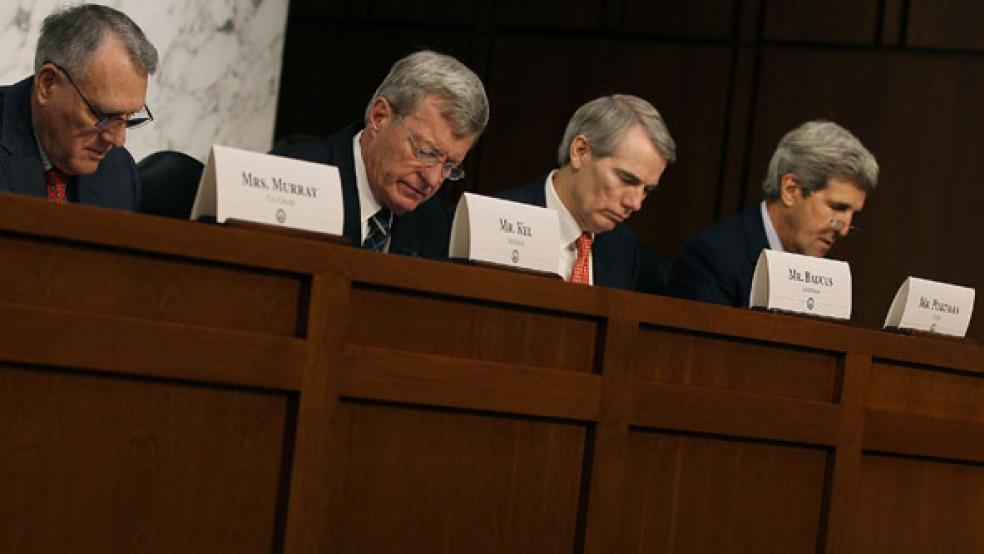Senate Democrats are urging the debt-reduction supercommittee to pursue a far-reaching agreement to slice $3 trillion from the federal budget over the next decade through significant cuts to federal health programs, including Medicare, and as much as $1.3 trillion in new taxes.
At a closed-door meeting Tuesday, Sen. Max Baucus (D-Mont.) told his colleagues on the panel that they should pick up where President Obama and House Speaker John A. Boehner (R-Ohio) left off in negotiations this summer during a bitter battle to raise the federal debt limit, according to congressional aides in both parties familiar with the meeting. Obama and Boehner were discussing a plan that included provisions to raise taxes, raise the Medicare eligibility age and use a less generous measure of inflation to calculate Social Security benefits.
Baucus, the aides said, proposed that the committee look at slightly larger revenue increases. That idea faced immediate push-back from Republicans on the panel, who have consistently refused to consider raising revenue through any means other than economic growth.
Baucus’s proposal suggests a plan about equally divided between tax increases and spending cuts, including as much as $500 billion in fresh savings from health programs, such as Medicare and Medicaid. Aides said Baucus also urged his colleagues to approve Obama’s request for as much as $300 billion in fresh measures aimed at stimulating the economy, another idea Republicans have resisted.
The offer represents the thinking of Senate leaders and marks the first time either party has put numbers on paper in an effort to jump-start the talks, which are facing a Thanksgiving deadline. The panel has floundered since meetings began in September. If the supercommittee fails to reach agreement to trim borrowing by at least $1.2 trillion through 2021, automatic spending cuts of an equal amount would be triggered in January 2013. These cuts would strike hard at the Pentagon.
It was not immediately clear what impact the offer would have on the talks. Although declining to comment publicly on the offer, Republican aides privately dismissed the tax and stimulus pieces as unacceptable.
Democratic aides, meanwhile, privately expressed little hope that a big deal is possible. They said Senate Democrats might be setting the stage to paint themselves as good-faith negotiators and to lay blame for the failure to reach agreement at the feet of Republicans.

